Classic Brits returns after five-year break
- Published
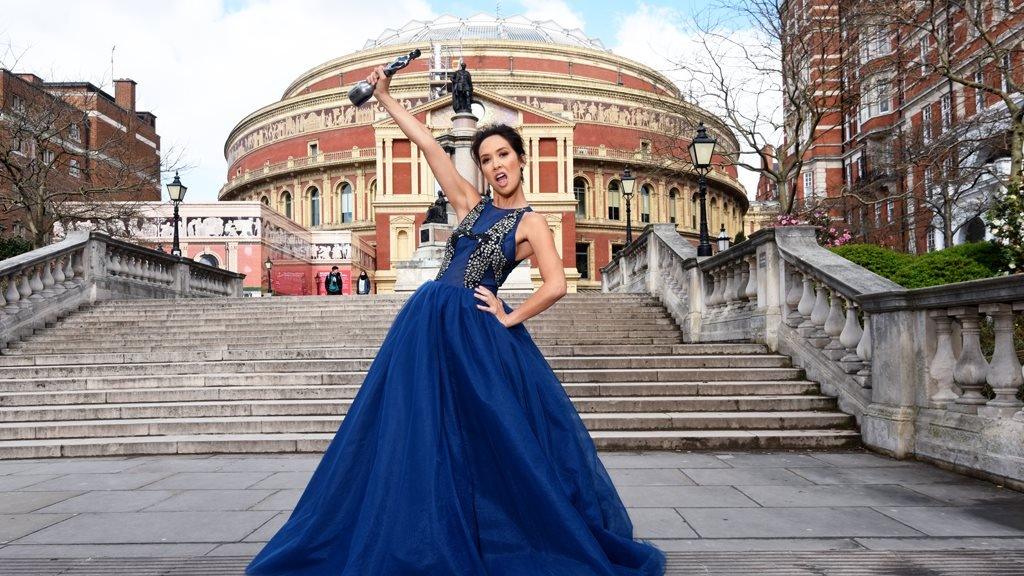
Myleene Klass returns to host the awards for the seventh time
The Classic Brits has been resurrected, five years after it was mothballed by the music industry.
The ceremony will return to the Royal Albert Hall in June, with performances from the likes of Andrea Bocelli, Bryn Terfel, Michael Ball and Alfie Boe.
In its previous guise, the show was accused of "cheapening" classical music by rewarding populist acts like Il Divo and the Military Wives choir.
Organisers say the event has been "reformatted and refreshed" for 2018.
Geoff Taylor, chief executive of the Brits, said the ceremony "will not only celebrate outstanding classical artists and exceptional new talent, but will pay tribute to classic music in all its forms".
Among the innovations, the ceremony is introducing a new award for up-and-coming artists.
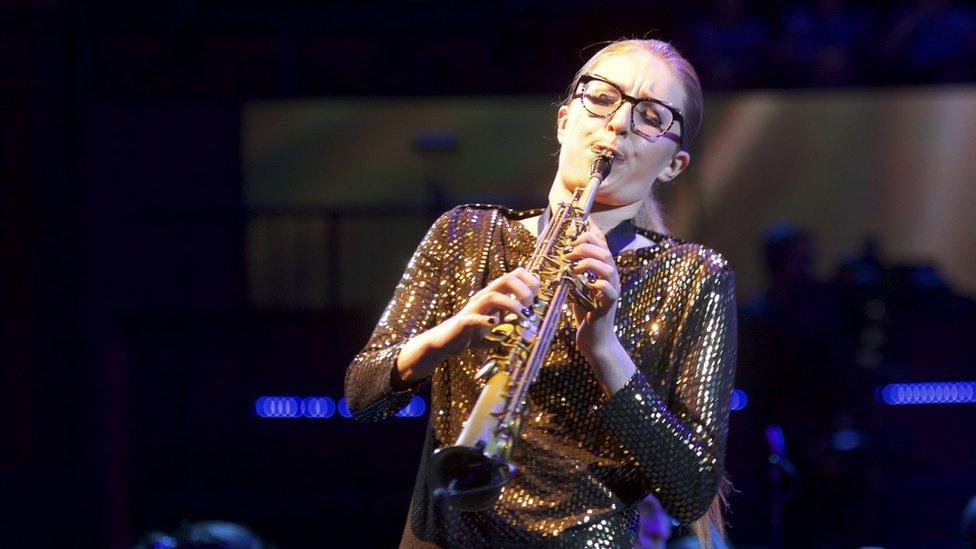
Saxophonist Jess Gillam is up for an award celebrating up-and-coming young musicians
The Sound Of Classical award will be given to a promising musician under the age of 30. Among the entrants for the inaugural award is saxophonist Jess Gillam, who was previously a finalist in BBC Young Musician 2016.
The 19-year-old said she was "thrilled" to receive a nomination.
"To give a platform for young artists to show their talent to a wider audience is a great idea and I hope it inspires more young musicians," she said.
Organisers have also revealed that Dame Vera Lynn will be given a lifetime achievement award, in the week she turns 101.
Last year, the forces' sweetheart became the first centenarian to score a Top 10 album.
Progressive
The revival of the Classic Brits reflects a surge of interest in classical music.
The Official Charts Company says streams of classical music have risen 52% in the first two months of 2018, surpassing 10 million streams every week except one, while Apple Music says a quarter of its subscribers listen to the genre.
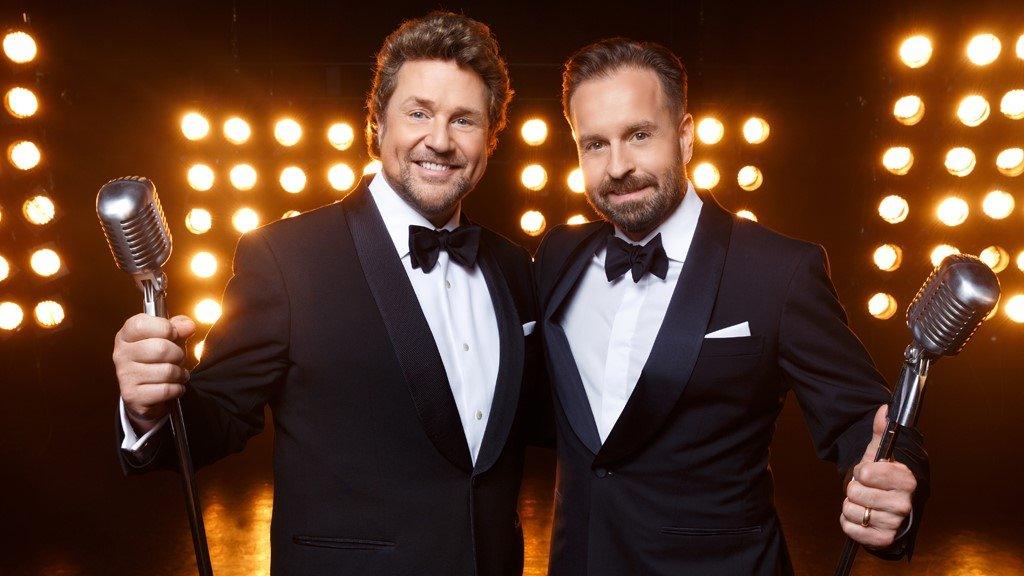
Michael Ball and Alfie Boe, who sold more than 1 million records last year, will perform at the ceremony
But previously, the Classic Brits was attacked for rewarding "populist" artists.
In 2012, rock critic Paul Morley called them a "scheming reduction of music to a sticky, manipulative meringue", while pianist James Rhodes said the ceremony was "an offensive, unnecessary, manipulative and dangerous sham" and a "sickening crime against classical music".
The new ceremony isn't likely to dodge those criticisms - with performances by Britain's Got Talent winner Tokio Myers and an award for video game soundtracks - but host Myleene Klass says the ceremony needs to reflect how "the younger generation are consuming their media".
"Video games are one way people are being introduced to that type of music, so it's well deserved," she told the BBC.
"And how progressive of the Classic Brits to turn around and acknowledge that."
The awards take place on 13 June at the Royal Albert Hall, and will be broadcast on ITV. Read our interview with Myleene below.

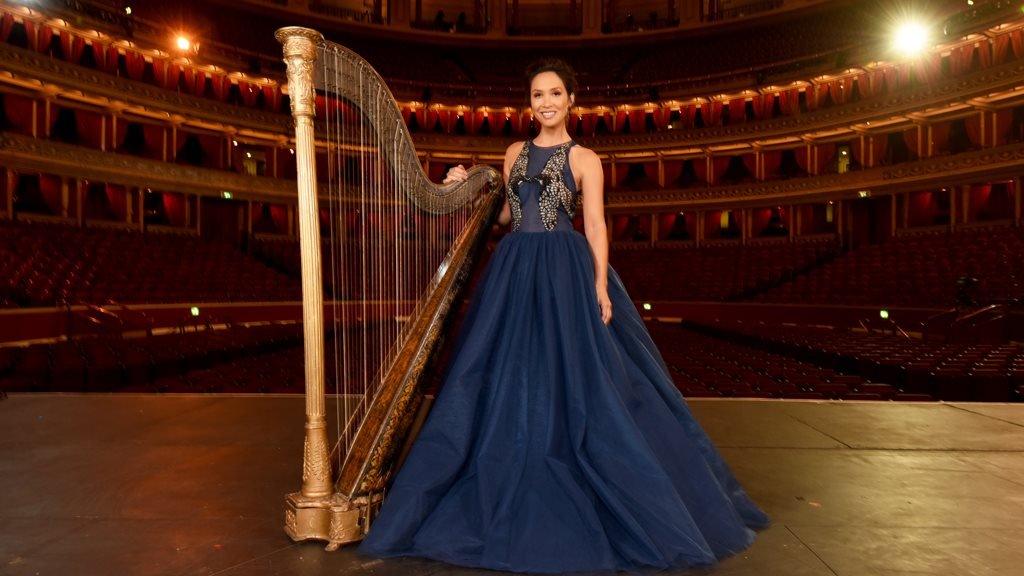
The Classic Brits disappeared for a while. What happened?
Somebody just told me it's been five years and I said, 'It can't possibly be as long as that!'. Where have I been all this time?
Look, I don't know where it went, I don't know why it went. But how wonderful to see it back again - and rightly so.
Why was this the right time?
Obviously, classical music never went away. It's a genre that's been around for hundreds of years. But what we seem to have done is canonise these performers into saints, and that does them a disservice. Mozart, Rachmaninoff, Beethoven, Handel - they were all renegades, they were all trailblazers, they were tearing it up. They'd have been on the front of every tabloid newspaper today.
Artists like [cellist] Sheku Kanneh-Mason and Jess Gillam seem to be introducing a new generation to classical.
My daughters are cello players, and I'm always showing them videos of Sheku! I just think he's an incredible example of how classical music is moving in a different direction.
But I think what is interesting, too, is how the reality TV shows - from X Factor to Britain's Got Talent - have all had winners that are classical musicians. Susan Boyle, Paul Potts, Tokio Myers. And Sheku even took part in Britain's Got Talent before winning BBC Young Musician.
At the same time, something like Celine Dion's All By Myself takes its melody from Rachmaninoff [Piano Concerto No. 2 in C minor]. People say, "I don't know any classical music" but everybody knows how to sing that. It's around all of us.
No Woman, No Cry... Sheku style (live on BBC Radio 3's In Tune)
The presence of cross-over artists like Il Divo and Bond was a source of criticism for the Classic Brits in the past. What's your take on that?
From the day I walked out onto the stage as a pop artist, then played the piano, I've had people make judgments and cast aspersions and, you know what? More fool them.
Do you really want to underestimate someone who sat in a rehearsal studio, chomping at the bit for eight hours every single day, then went to music college? The first thing I ever bought with my first Hear'Say cheque was a piano - and I didn't have enough for a stool.
Classical music has been my absolute love from day one. You cannot underestimate that level of determination and dedication you need to succeed as a classical musician.
You're co-presenting the awards with Alexander Armstrong. Will you pester him to get a slot on Pointless?
No.
Why not?
I've got enough on my plate as it is without putting myself in that hot seat!
Are you bad at quizzes?
I've got very bad recall.
I'm one of those people who's got good knowledge but if you asked me directions to my own house, where I've been living for 20 years, I'll forget!

Follow us on Facebook, external, on Twitter @BBCNewsEnts, external, or on Instagram at bbcnewsents, external. If you have a story suggestion email entertainment.news@bbc.co.uk, external.

- Published17 March 2018
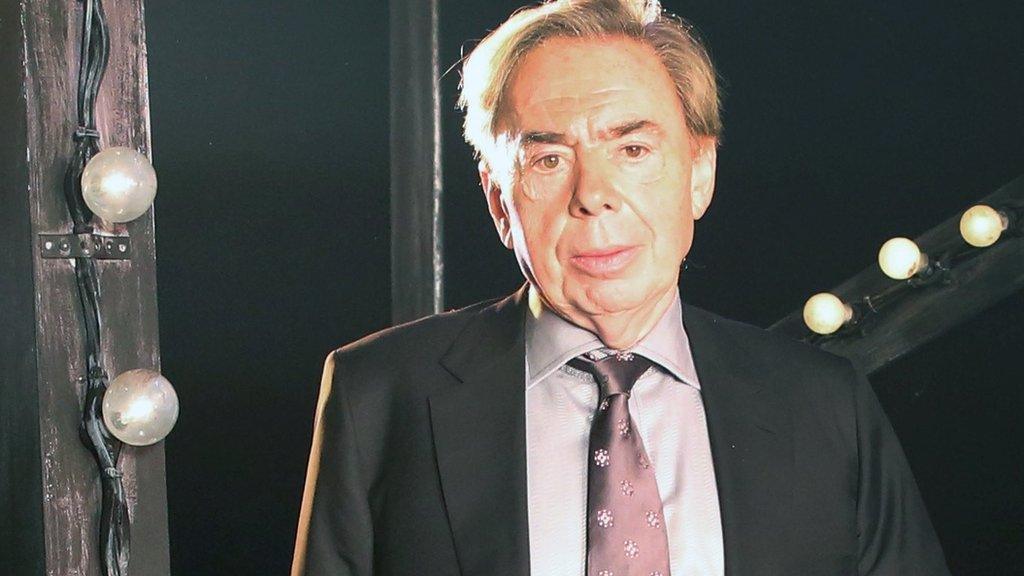
- Published1 February 2018
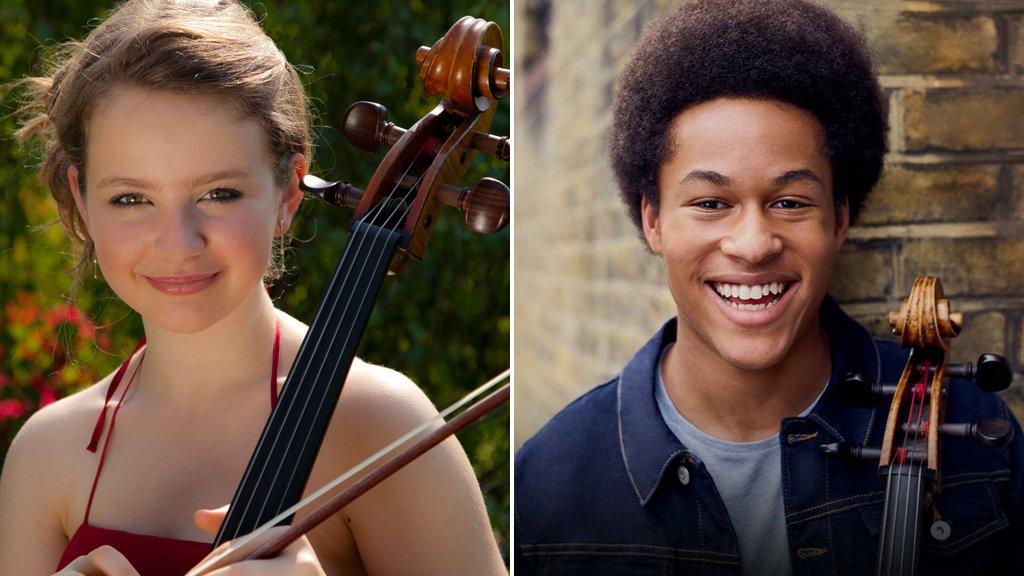
- Published30 November 2017
